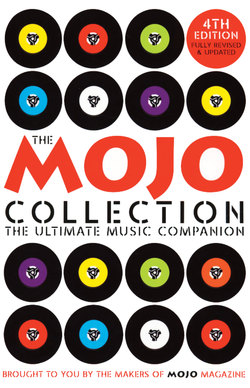Читать книгу The Mojo Collection - Various Mojo Magazine - Страница 88
На сайте Литреса книга снята с продажи.
Pearls Before Swine One Nation Underground Ukulele protégé beats Dylan, signs to eccentric New York jazz label and records classic psychedelic-folk debut.
ОглавлениеRecord label: ESP
Produced: Richard Alderson
Recorded: Impact Sound Studios, New York; May 6–9, 1967
Released: June 1967
Chart Peaks: None (UK) None (US)
Personnel: Tom Rapp (v, g); Wayne Harley (b, v, autoharp, banjo, mandolin, vibraphone, audio oscillator); Lane Lederer (v, b, g, English horn, swine-horn, sarangi, celeste, finger cymbals); Roger Crissinger (o, harpsichord, clavioline); Warren Smith (d, pc); Richard Alderson (ar); Elmer J Gordon (production aide)
Track listing: Another Time; Playmate; Ballad To An Amber Lady; (Oh Dear) Miss Morse; Drop Out! (S); Morning Song (S); Regions Of May; Uncle John; I Shall Not Care; The Surrealist Waltz
Running time: 36.25
Current CD: ESP ESPD40032 The Complete ESP Disk Recordings adds album Balaklava.
Further listening: Constructive Melancholy (1999) is an excellent compilation of the Reprise years.
Further reading: www.pbswine.com
Download: emusic
As a child Tom Rapp entered a Minnesota talent contest with his ukulele and came third ahead of a certain Bobby Zimmerman; years later it was hearing Dylan’s Blowin’ In The Wind that inspired him to take up folk guitar. In 1965 Rapp was still at high school in Florida when he put together a band under the somewhat provocative name of Pearls Before Swine. After sending a demo to the avantgarde ESP label (chosen because they had signed The Fugs), the group were summoned to New York where they cut their debut in just four days in a cramped but well-equipped 4-track studio.
The result is a timeless collage of evocative poetry and haunting melodies, performed with an eccentric array of mostly acoustic instruments. Another Time – Rapp’s first serious venture into songwriting and a blueprint for much of his later work – was inspired by his miraculous survival of a car crash, its meditative lyrics brooding upon the struggle of the individual within a wondrous yet capricious universe. Morning Song, with its striking recorder solo, and the aptly named Surrealistic Waltz venture into darker territory reminiscent of JRR Tolkien, while the spirit of the times is perfectly captured by songs like Drop Out! and Uncle John (the latter a scathing assault on the hypocritical alliance between religion, patriotism and politics). Yet there are also moments of delightful irreverence: (Oh Dear) Miss Morse apparently got a New York DJ into hot water after several boy scouts managed to crack its coded chorus – the dots and dashes spelt out F.U.C.K.!
According to Rapp the band’s influences were diverse – ‘everything from Peter, Paul & Mary to The Velvet Underground’ – but perhaps the Pearls’ most intriguing quality was their ability to borrow from the distant past without losing sight of the present. I Shall Not Care quotes inscriptions from Roman tombs while the eastern modal patterns which trickle through Ballad Of An Amber Lady are a perfect evocation of a Pre-Raphaelite painting. The sleeve art featured a detail from Hieronymous Bosch’s Garden Of Earthly Delights, the LP including a free poster of the painting.
Despite the album selling in excess of 100,000 copies, ESP’s liberal attitude toward its artists sadly failed when it came to paying royalties. After one more record for the label Rapp moved to Reprise and later Blue Thumb, for whom he continued to record into the early ’70s. Eventually he called it a day and qualified as a human rights lawyer, but after a revival of interest in his work he was persuaded to return to music and in 1999 released his first album in over 25 years.
